Clinton Hill Nonprofit Wants Land Use Change to Construct 11-Story Building Across From Pratt
Institute for Community Living wants to replace their four-story, 107-year-old building at the corner of Willoughby Avenue.

Rendering by Dattner Architects
A Clinton Hill nonprofit is looking for a land-use change that would allow them to build an 11-story structure on Emerson Place to provide below-market-rate apartments and more supportive housing to help struggling families.
Institute for Community Living — which helps house and treat families around the city experiencing issues like homelessness and drug addiction — wants to replace their four-story, 107-year-old building at 161 Emerson Place, at the corner of Willoughby Avenue, which has become outdated and too small for the nonprofit’s mission, said a rep with the organization.
“This was built a long time ago and not meant for the very specific purpose that we’re trying to accomplish,” said ICL’s chief financial officer, Nikant Ohri, at a presentation to local Community Board 2’s Land Use Committee on December 16. “While we believe we’re successful, we want to be more successful, we want to have the ability to help more people.”
The organization currently serves mostly single women at the site who have lost custody of their kids and provides them with support in an effort to reunite them with the families — which they have successfully done in 72 percent of their cases, according to Ohri.
The organization is seeking several zoning variances with the city’s Board of Standards and Appeals that would allow them to build higher and bulkier in order to accommodate more below-market-rate units, which they say will finance the construction of more supportive units.
The current, 1913-built building lives across the street from the Pratt Institute and houses 32 tenants in supportive housing, offering low-priced apartments with social support on-site, such as family services, job search, and addiction treatment.
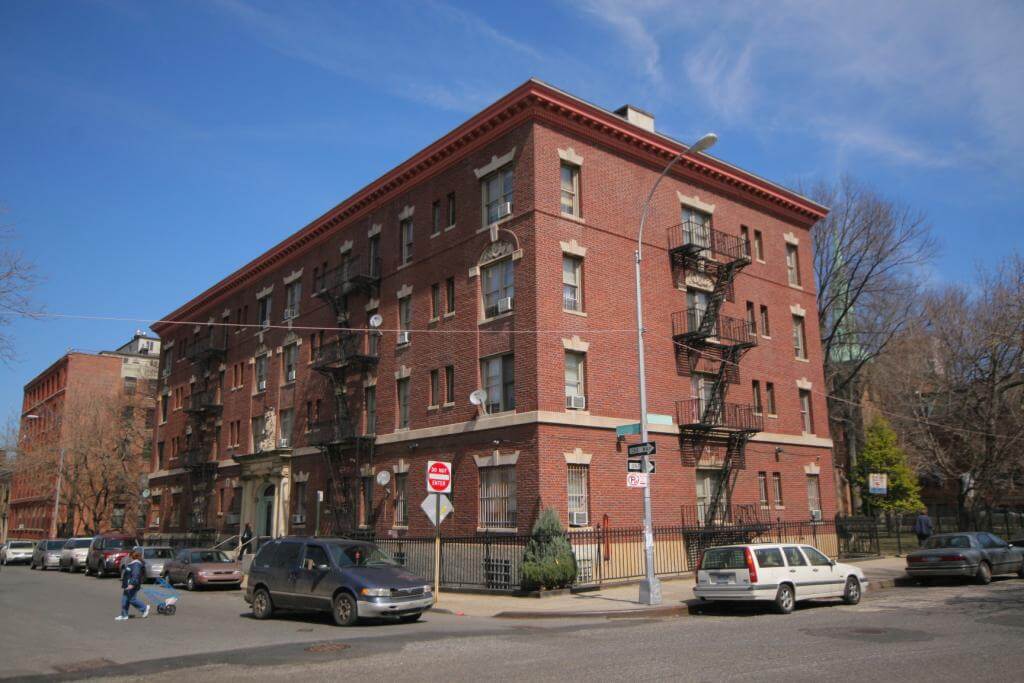
ICL wants to demolish the old structure to make way for the larger building that would contain 81 apartments, ranging from studios to two-bedrooms — with 49 of them earmarked as supportive units, and 32 as income-targeted.
The 32 below-market-rate units would be slated for residents with incomes no higher than 57 percent of Area Median Income, which, for a family of three, is a salary of $58,368.
The rent collected from the affordable units would cover the cost of the supportive units, according to the developer.
During construction, current residents would be relocated to one of ICL’s 24 other sites, and they will be invited to return once the project is complete, they said.
A lawyer for the developer did not immediately return a request for comment seeking a timeline for the project.
The overhaul includes an outdoor play area along Emerson Place, and several facilities along the ground floor, including rooms for counseling, a teaching kitchen, and a tenant lounge, which are accessible to all tenants.
In the cellar, there will be bike storage, a workspace and a computer lab, along with a laundry and fitness space.
The proposed building steps down in height and features a setback along Emerson Place, while incorporating earthy brown and red colors in order to fit it in better with the surrounding neighborhood, according to the project’s designer.
“We feel that even though this is a building that is larger than what’s there it’s still very much in keeping with the context of the neighborhood,” said John Woelfling of Dattner Architects.
The CB2 committee overwhelmingly welcomed the proposal, saying it offered a small step toward alleviating the citywide homelessness crisis.
“There are 70,000 homeless families in the city of New York if you divide that by each Council District, there are 1,000, or 1,200, or 1,300 families that each Council District should absorb. This is a very small step in that process,” said committee member John Dew.
One former resident of the building said that the organization is life-saving for struggling Brooklynites, and that the units are needed now more than ever amid the twin crises of homelessness and the COVID-19 pandemic.
“These people are saving people like me’s lives,” said Renee Mitchell. “With this pandemic and all these homeless people out here with mental health issues and it’s not being addressed, you will be also helping them people with their lives.”
The committee’s 10 members unanimously gave their advisory vote to approve the project.
The proposal now heads to the full board for a recommendation vote, which it will forward to the BSA to give its binding decision.
Editor’s note: A version of this story originally ran in Brooklyn Paper. Click here to see the original story.
Related Stories
- Last Look at the Dean Sage House in Crown Heights Before Its LPC-Approved Expansion?
- Landmarks OKs New Building Set to Rise Behind Historic Empire State Dairy in East New York
- Eight Stories of Supportive Housing to Replace East Flatbush Townhouse
Sign up for amNY’s COVID-19 newsletter to stay up to date on the latest coronavirus news throughout New York City. Email tips@brownstoner.com with further comments, questions or tips. Follow Brownstoner on Twitter and Instagram, and like us on Facebook.

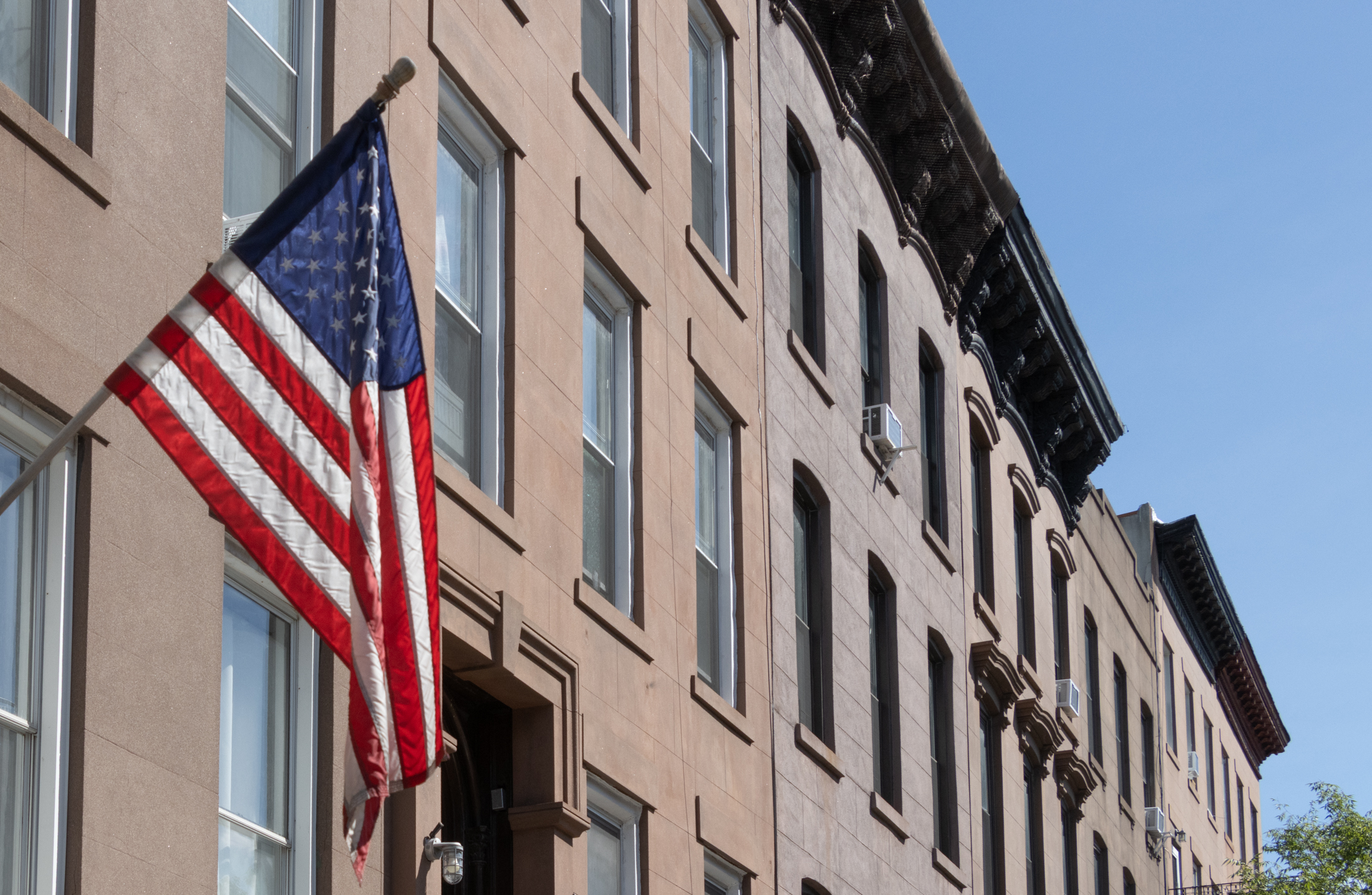
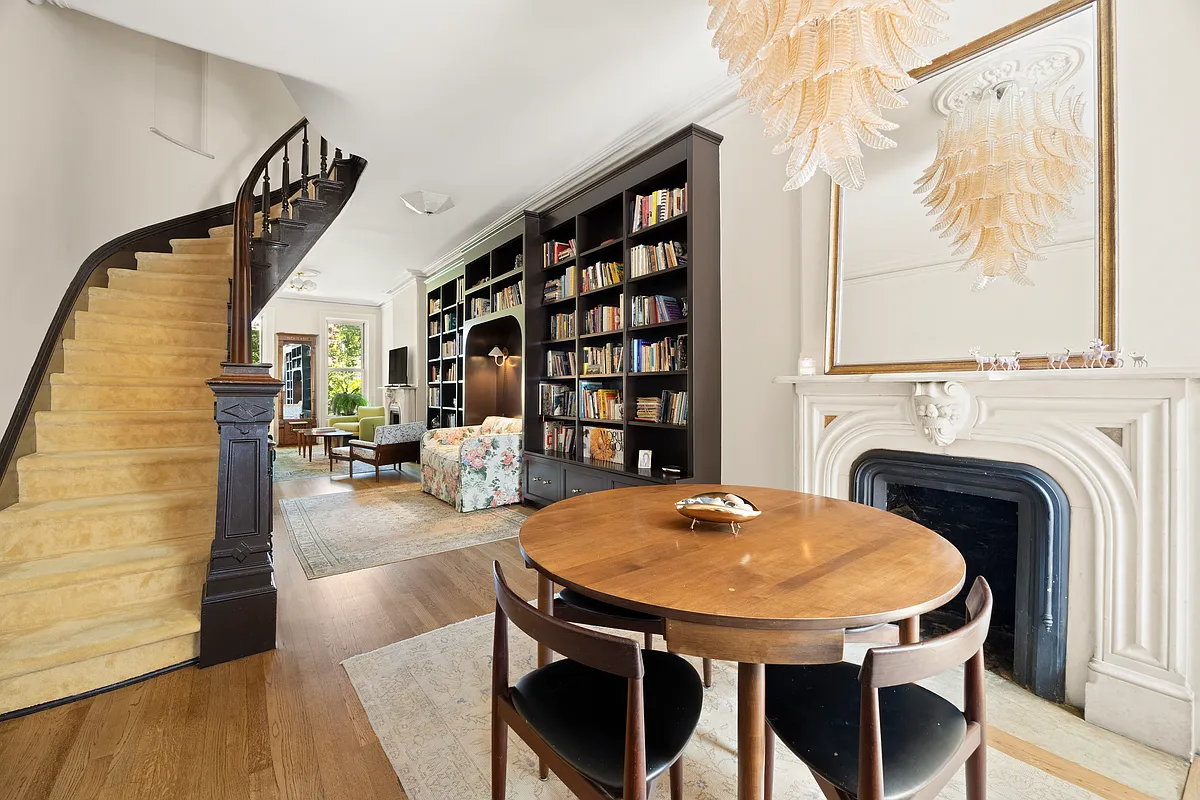
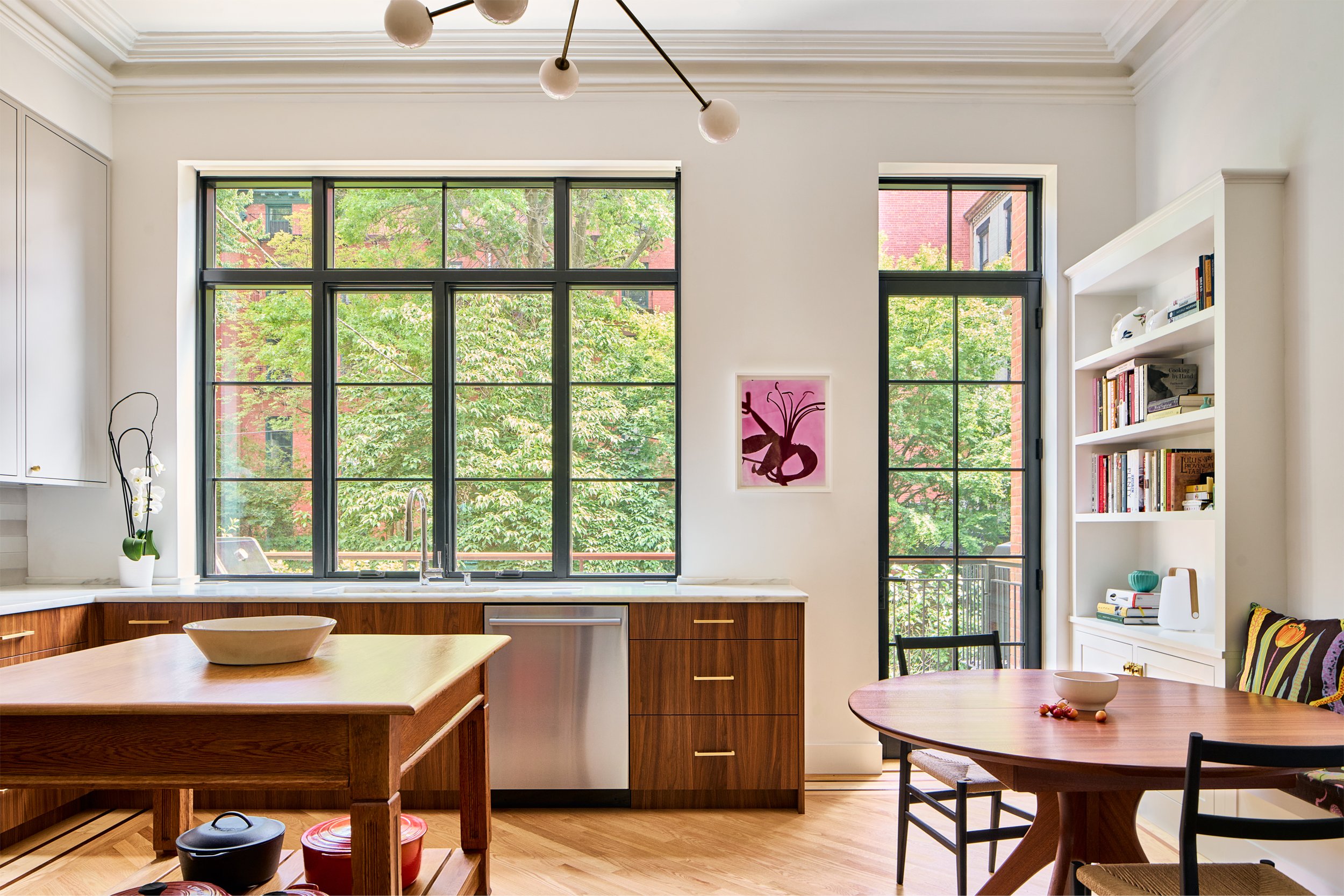
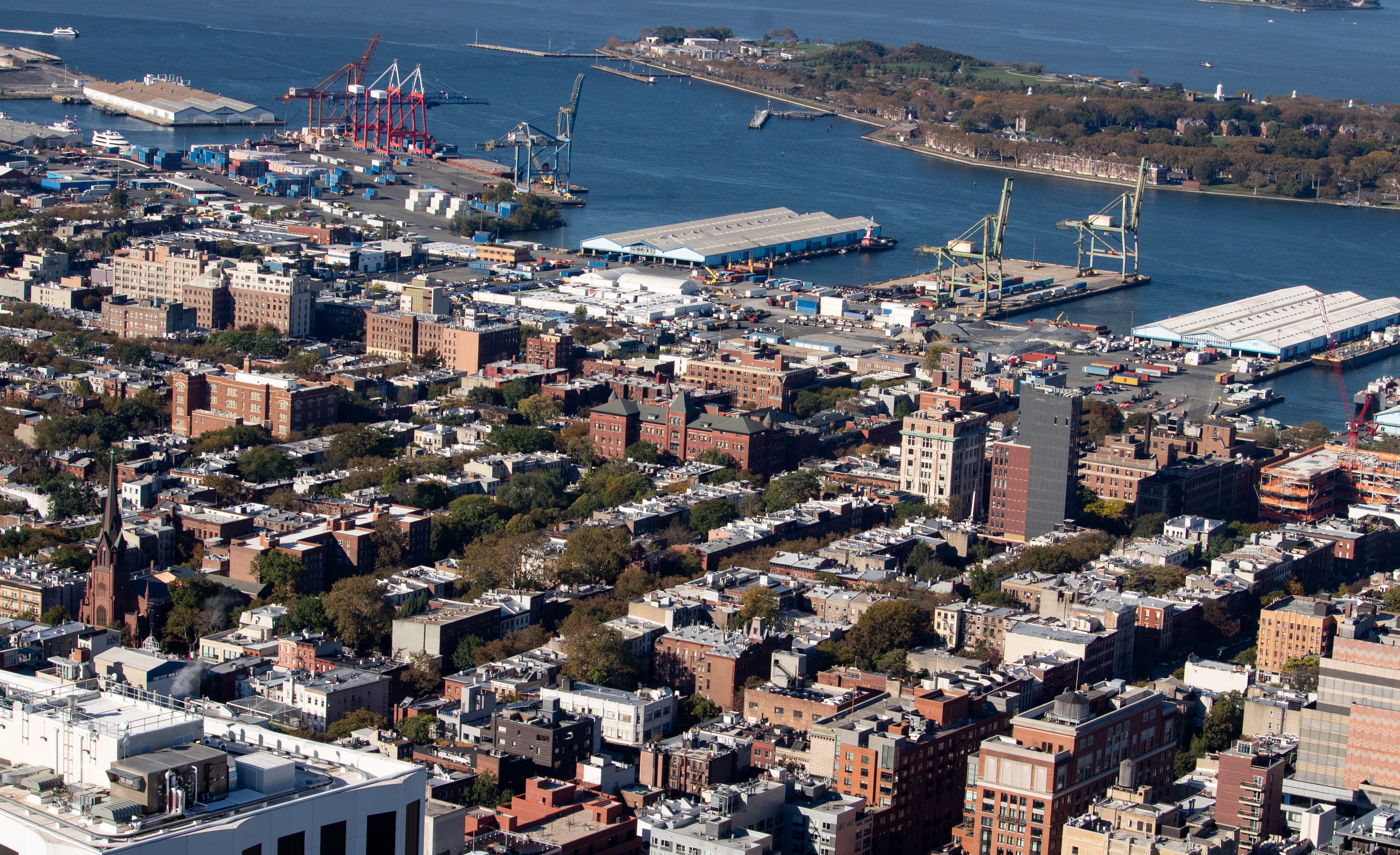
What's Your Take? Leave a Comment